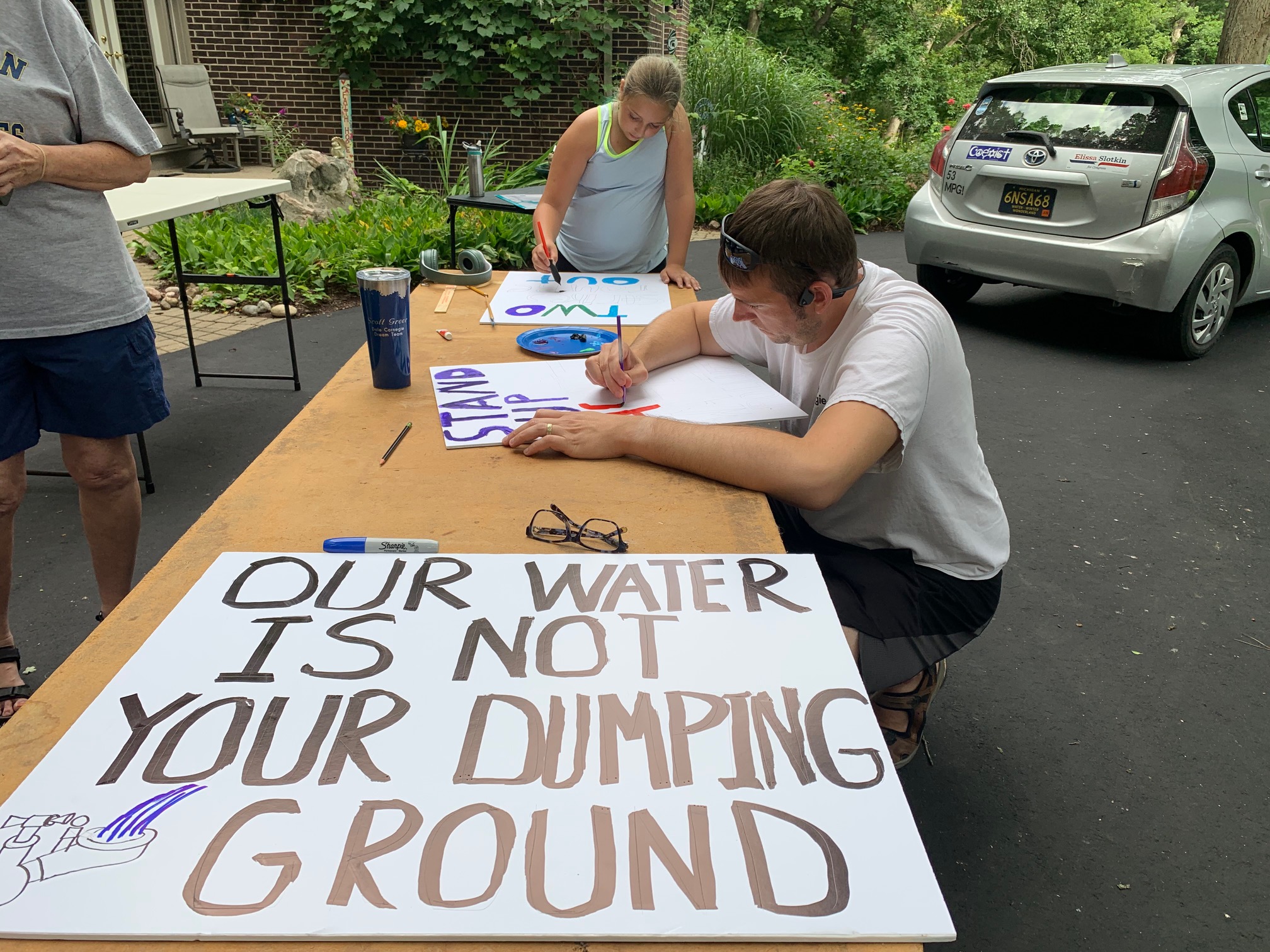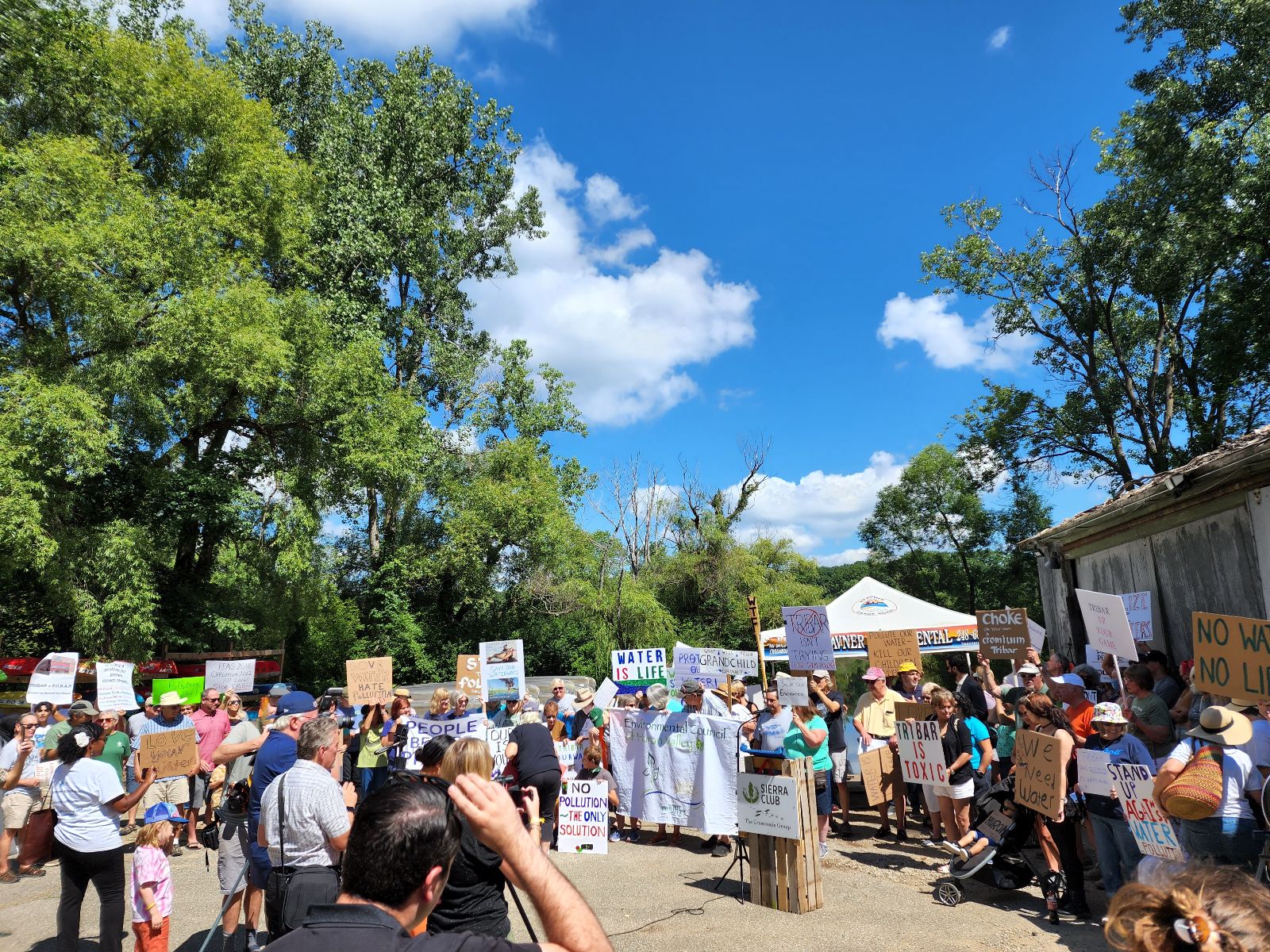
Activists create signs to use for the press conference about Tribar's chemical spill the night before. Photo credit: Lee Burton
The public health advisory declaring the Huron River off limits to human contact below the Wixom Tribar Manufacturing plant has been lifted but Sierra Club and partners, including elected officials, are demanding major changes to prevent future catastrophes from happening. The discharge of highly carcinogenic hexavalent chromium from Tribar into the Wixom sewerage system as a company staff member overrode alarms was just the latest threat to the river popular with recreationalists that also provides municipal water to the city of Ann Arbor. The vast majority of the toxic chemical was evidently bound up in the organic material at the Wixom sewage plant, where staff acted swiftly to contain the contamination after learning of the discharge. Tribar has been hit with a violation notice by Michigan environmental regulators but demands to shut the plant down have been increasing based on a past record of toxic discharges.
At an August 10 press conference at Heavner’s canoe livery just upstream from the plant, Sierra Club members from the Crossroads, Huron Valley and Southeast Michigan Group supported calls for passage of polluter pays legislation to hold companies like this accountable. As a result of the illegal discharge, Heavner and other businesses dependent on recreational uses of the Huron River faced the loss of virtually all their business during the height of the summer season. The continuing concerns about the contamination may lead to skepticism about agency claims that the Huron River is now safe, extending the economic harm.


From left to right: Tiffany Stewart, Sierra Club volunteer and leader of Eco HV, speaks at the press conference. Activists with signs join calls to hold Tribar and other corporations accountable. Photo credit: Tim Minotas
"The fact that Tribar Manufacturing overrode their alarm system over 460 times is certainly egregious," said Tim Minotas, the Michigan Chapter’s legislative and political coordinator. "It's appalling that one industrial company was able to cause so much damage to our rivers, and did so knowingly. We don’t need more proof that industry must be held accountable and forced, by law, to pay for the pollution they cause."